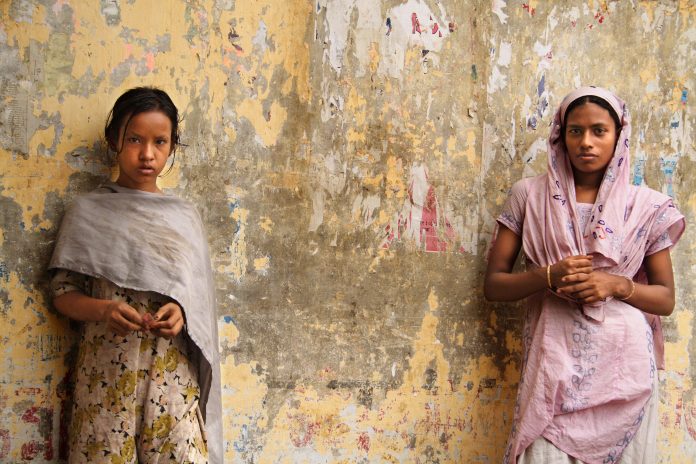Holding conversations in the slums of Dhaka, researchers found that poorer women in Bangladesh feared making “undocumented payments” as a necessity of accessing maternity healthcare
Researchers found that these women faced a distinctly tangled-up set of factors that made it difficult for them to get help with their pregnancy.
In addition to fears of some unspoken costs in exchange for access, these communities also felt unfamiliar with institutional processes, lacked social support to access these services, experienced life through the framework of honour and shame, and found there was inadequate communication between spouses for such health issues.
Nearly one quarter to one third of Bangladesh’s population lives under extreme poverty. Maternal health is one of several health indicators that researchers are attempting to map and understand, so that policy-decisions can be made with higher efficiency.
So many of the ultra-poor households depend on wage-labour – the kind of heavy lifting of bricks that can be seen on all city roadsides, or working 12 plus hour long shifts in a garment factory on a daily basis. All of these occupations are very vulnerable to any kind of disaster, leaving the income of such women as uncertain as the weather. This socio-economic group of women is often excluded from Government assessments of the population as a result.
Based on her PhD study undertaken at Flinders University, Associate Professor Sanzida Akhter of Dhaka University and her Flinders University supervisors, Associate Professors Gouranga Dasvarma and Udoy Saikia highlighted the reasons behind these women’s reluctance to give birth in hospitals, despite government efforts to expand services across the country.
Give more information to poorer women in Bangladesh
The authors of the paper say that their research highlights the importance of providing pregnant women with information to help them break free of fears about hospital childbirth, the hidden costs of healthcare and bridging cultural relations with providers.
The authors wrote that:
“Even though low-cost health care facilities may be within their reach in terms of physical distance and affordable, these women and their families are unwilling to deliver their babies at such health facilities.”
“The financial, physical and social limitations of the women and those of their family members prevent them from seeking maternal health care at health facilities. They do not make any effort to overcome these barriers because they appear to be content with their age-old perception of pregnancy and childbirth as part of nature and not a special event worth giving any special attention to.”
What about richer women in Bangladesh?
The contrast in the practice of maternal healthcare and childbirth between lower and upper socio-economic status women was also identified, with an example where 61% of the richer women opt for Caesarean Section deliveries compared to only 13% of the poorer women.
The study also found poor behaviour by doctors and a lack of interpersonal communication with healthcare providers added to the pregnant women’s reluctance to rely on traditional medical options. The authors further commented:
“This difference in maternal health care services and childbirth practised by the Bangladesh women clearly indicates that childbirth is influenced by a woman’s socio-economic status and her cultural perception of childbirth.”
“The women rightly expect to be treated respectfully and get information explained to them clearly but when their expectations aren’t fulfilled, they rejected the thought of going there again.
“This is a situation, where ‘interpersonal relations’ go beyond simply only providing accurate information.”











